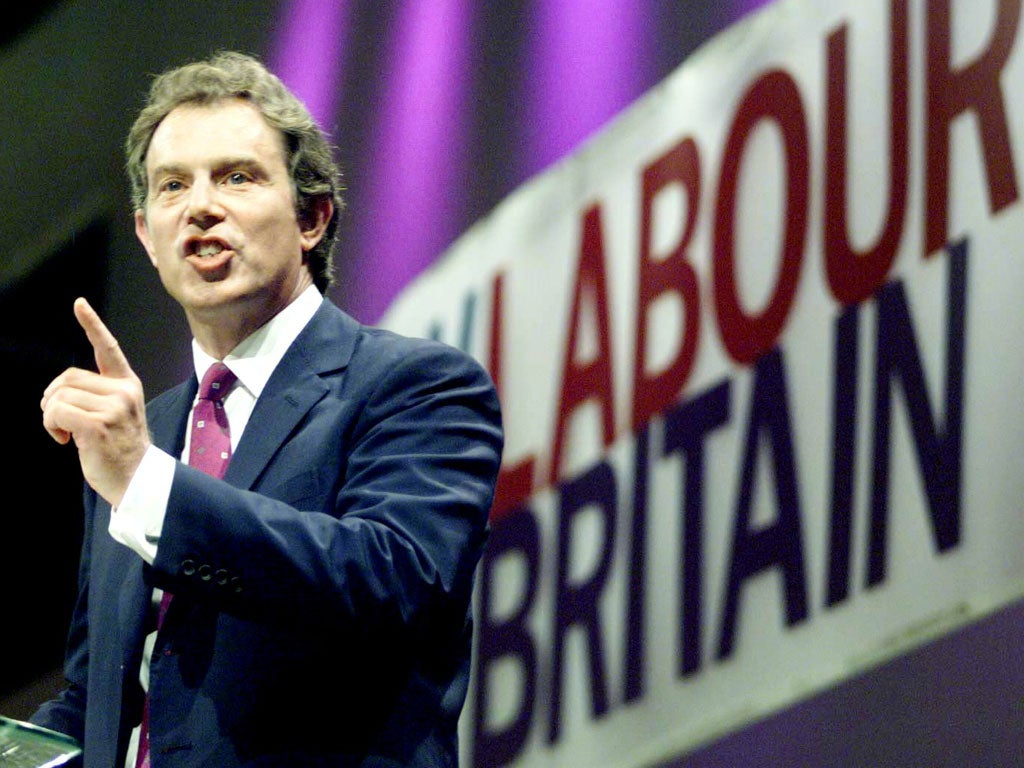Whatever happened to Labour’s promise to abolish child poverty by this year?
In 1999 Tony Blair promised to end child poverty by this year – so what happened, asks John Rentoul


The government is on the defensive against a compelling campaign by Marcus Rashford, the footballer, to help children entitled to free school meals to be fed over the holidays. Keir Starmer, the Labour leader, tabled a motion in parliament last week demanding that the government continue the holiday voucher scheme, which was defeated by Conservative MPs, many of them unhappy at being instructed to vote against it.
Now Kate Green, the shadow education secretary, is threatening to force another vote if Boris Johnson refuses to change his mind before the Christmas holiday. Labour says it intends to increase the pressure on the government “to make tackling child poverty a national priority”.
Green points out that the last Labour government pledged to end child poverty altogether by 2020, a deadline that has come and gone under a Conservative government with 4.2 million children, 30 per cent of the total, still officially defined as being in poverty.
So what has happened to child poverty since Tony Blair made that striking promise in a speech at Toynbee Hall in east London in March 1999? He declared: “Our historic aim will be for ours to be the first generation to end child poverty. It will take a generation. It is a 20-year mission, but I believe it can be done.”
After his speech, the target was specified. The policy would start the following year, with the new millennium, so the target date was 2020. Child poverty was defined, as had been the accepted measure for decades, as living in a household with an income lower than 60 per cent of the median.
It was a demanding target, not least because it was set by a measure of relative poverty, so that, as the country became richer, the level of income required to avoid poverty would rise. In the long term, the means of achieving the target was to promote full employment and to improve education, especially for children from poorer homes, so that incomes would be more equal.
In the short term, however, the main instrument was the tax credit system devised by Gordon Brown, which topped up the income of low-paid workers with children. This became hugely expensive and Blair believed it offered poor value for money, but it undoubtedly contributed to progress towards the child poverty target.
The number of children in poverty fell by about 800,000 under the Labour government, although from about 2004 progress diverged from the line required to meet the abolition target.
When the Conservative and Liberal Democrat coalition took over, it was engaged in a constant struggle between what it saw as the need to balance the government’s books after the financial crash and the desire, especially of the Lib Dems, to keep reducing child poverty. The Lib Dems didn’t succeed, although they can argue that things would have been worse if they hadn’t restrained the Conservatives in government. The number of children in poverty drifted back up again, and has risen by about 300,000 since 2010.
Most of the Labour government’s gains have lasted, therefore, but the ideal of “abolishing” child poverty remains a distant prospect. And it is possible that the numbers in severe poverty have risen: government statistics on this are not good, but the rise of food banks suggests that there is more actual hunger than there used to be.
Subscribe to Independent Premium to bookmark this article
Want to bookmark your favourite articles and stories to read or reference later? Start your Independent Premium subscription today.
Join our commenting forum
Join thought-provoking conversations, follow other Independent readers and see their replies
Comments